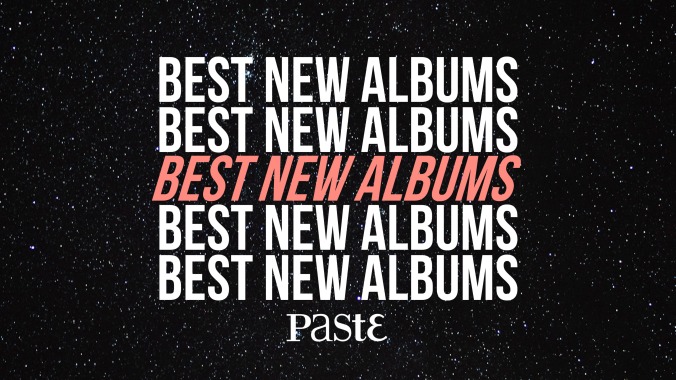
Paste is the place to kick off each and every New Music Friday. We follow our regular roundups of the best new songs by highlighting the most compelling new records you need to hear. Find the best new albums of the week below, from priority picks to honorable mentions.
Blushing: Sugarcoat
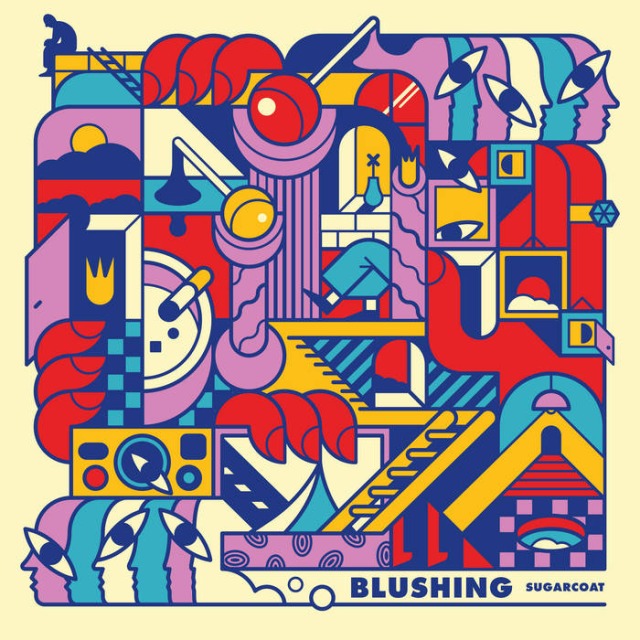 For their upcoming third album Sugarcoat, Blushing weren’t in a hurry to get things done this time. With the commitments of work and life absorbing their time, the band decided to let the creative process flow naturally over a long period of time. They spent about a year writing songs for Sugarcoat before spacing out their studio work throughout 2022 and 2023. The result is an album sculpted from warm, harmonious feelings. The simmering summers of Austin seep through the layers of instrumentation, breezing by like an alluring daydream. Tracks like “Tamagotchi” are inspired by campy ‘90s comedies—like She’s All That and Clueless—refining a layered and infectious bubble-gum popping angst over soaring choruses. Former Smashing Pumpkins guitarist Jeff Schroeder makes an appearance on the album playing lead guitar on the shimmering single “Seafoam.” —Grace Ann Natanawan [Read our full feature]
For their upcoming third album Sugarcoat, Blushing weren’t in a hurry to get things done this time. With the commitments of work and life absorbing their time, the band decided to let the creative process flow naturally over a long period of time. They spent about a year writing songs for Sugarcoat before spacing out their studio work throughout 2022 and 2023. The result is an album sculpted from warm, harmonious feelings. The simmering summers of Austin seep through the layers of instrumentation, breezing by like an alluring daydream. Tracks like “Tamagotchi” are inspired by campy ‘90s comedies—like She’s All That and Clueless—refining a layered and infectious bubble-gum popping angst over soaring choruses. Former Smashing Pumpkins guitarist Jeff Schroeder makes an appearance on the album playing lead guitar on the shimmering single “Seafoam.” —Grace Ann Natanawan [Read our full feature]
Camera Obscura: Look to the East, Look to the West
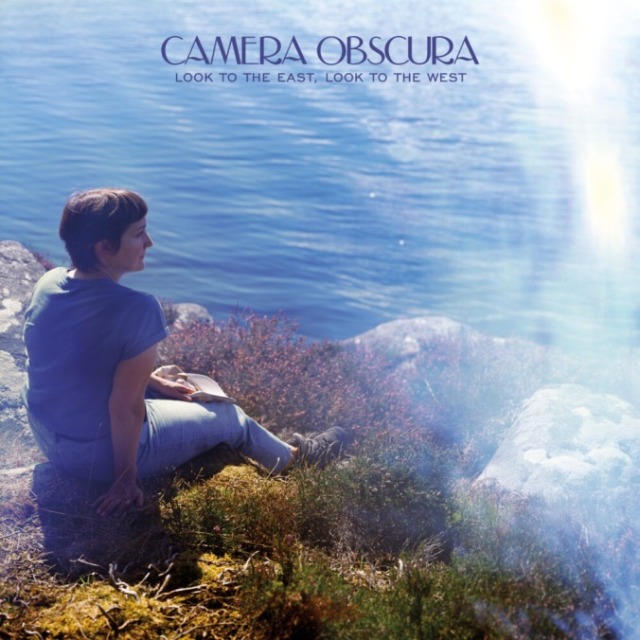 Look to the East, Look to the West is Camera Obscura’s first album since Desire Lines in 2013, and since the death of keyboardist and singer Carey Lander from an aggressive form of bone cancer in 2015. No wonder the band stayed dormant for a few years, which is when singer Tracyanne Campbell teamed up with Danny Coughlan to record a self-titled album as Tracyanne & Danny. Camera Obscura reconvened in 2018 for a handful of gigs and, after a pandemic-elongated delay, have finally returned with Look to the East, Look to the West. Although the band retains a knack for lush songs that are at once dreamy and catchy, the 11 tracks here are subtler than in years past. That’s understandable: Everyone is older now, and the youthful fervor that fueled the band’s earlier work doesn’t burn quite as hot. You can hear it in the music: In place of the bold string charts and sweeping orchestrations, Look to the East, Look to the West goes for a more basic sound that favors keyboards, particularly organ and piano.
Look to the East, Look to the West is Camera Obscura’s first album since Desire Lines in 2013, and since the death of keyboardist and singer Carey Lander from an aggressive form of bone cancer in 2015. No wonder the band stayed dormant for a few years, which is when singer Tracyanne Campbell teamed up with Danny Coughlan to record a self-titled album as Tracyanne & Danny. Camera Obscura reconvened in 2018 for a handful of gigs and, after a pandemic-elongated delay, have finally returned with Look to the East, Look to the West. Although the band retains a knack for lush songs that are at once dreamy and catchy, the 11 tracks here are subtler than in years past. That’s understandable: Everyone is older now, and the youthful fervor that fueled the band’s earlier work doesn’t burn quite as hot. You can hear it in the music: In place of the bold string charts and sweeping orchestrations, Look to the East, Look to the West goes for a more basic sound that favors keyboards, particularly organ and piano.
The resulting vibe is less insistent. Rather than park these songs on your doorstep, it’s more like Camera Obscura have issued a standing invitation to dig beneath the surface if you want to. There’s plenty to find. Warm pedal steel guitar slides around underneath a marching beat and grainy electric guitar on lead single “Big Love,” while keyboards and bass lock into a vintage-style soul groove topped with fat guitar chords on “Denon” (which does feature subtle strings in the background). Campbell sounds as wistful and moonstruck as ever. Her voice wavers between fragile confidence and haughty longing on opener “Liberty Print,” which scrolls by like an indie-pop Jane Austen gala. Campbell offers a languid sense of determination on “We’re Going to Make It in a Man’s World,” where atmospheric synthesizers drift past the wordless vocals that carry the song. Elsewhere, on “Sugar Almond,” she simply sounds sad. The song is an elegy for Lander, and the minor-key piano part and Campbell’s aching vocal hint at the wrenching depths of losing a bandmate and, more importantly, a friend. It’s no small thing that Camera Obscura found their way back from that—not every band could (or should). It turns out that subtlety suits them, and if Look to the East, Look to the West isn’t as immediately grabby as past albums were, these songs are nonetheless built to last. —Eric R. Danton [Read our full review]
Charlotte Day Wilson: Cyan Blue
 Charlotte Day Wilson continues to be one of the most impressive yet under-the-radar pop musicians working today. On her new album, Cyan Blue, she flutters between chart-worthy singles and intricate, introspective folk spaces. “My Way” is a perfect distillation of both worlds, building up from a plucky acoustic ballad into a striking R&B tune that is as silky as it is sensual and immersive. Wilson’s collaboration with Snoh Aalegra, “Forever,” is one of the best soul songs of 2024 thus far, too, as her voice stretches out into a reverb-soaked beckon that “forever’s not enough.” And on “Canopy,” Wilson unleashes her knack for packing ample emotion into crevices bedecked in color yet hauntingly liminal. The song’s instrumental flourishes through only a strident, liquid-heavy guitar riff and Wilson’s always-resonating alto voice musing about how “losing love and leaving can be just as inspiring as finding it.” “You get what you give into, it’s not the world versus you,” she sings. “But you can’t be taught ‘poor you syndrome,’ always the victim.” Time and time again, Charlotte Day Wilson puts out music that makes you stop what you’re doing and pay attention. For 40 minutes, Cyan Blue strikes while the iron’s hot. —Matt Mitchell
Charlotte Day Wilson continues to be one of the most impressive yet under-the-radar pop musicians working today. On her new album, Cyan Blue, she flutters between chart-worthy singles and intricate, introspective folk spaces. “My Way” is a perfect distillation of both worlds, building up from a plucky acoustic ballad into a striking R&B tune that is as silky as it is sensual and immersive. Wilson’s collaboration with Snoh Aalegra, “Forever,” is one of the best soul songs of 2024 thus far, too, as her voice stretches out into a reverb-soaked beckon that “forever’s not enough.” And on “Canopy,” Wilson unleashes her knack for packing ample emotion into crevices bedecked in color yet hauntingly liminal. The song’s instrumental flourishes through only a strident, liquid-heavy guitar riff and Wilson’s always-resonating alto voice musing about how “losing love and leaving can be just as inspiring as finding it.” “You get what you give into, it’s not the world versus you,” she sings. “But you can’t be taught ‘poor you syndrome,’ always the victim.” Time and time again, Charlotte Day Wilson puts out music that makes you stop what you’re doing and pay attention. For 40 minutes, Cyan Blue strikes while the iron’s hot. —Matt Mitchell
Hana Vu: Romanticism
 Historically, the Romantic Era over 220 years ago was a retaliation to an increasingly conservative European political environment, championing imagination and spontaneity through music, art and language. Hana Vu’s retaliation is more personal than political, directed at the demands of adulthood and the expectations of a young woman to journey through specific life landmarks once she sails out of her teens. Vu’s 2021 debut album, Public Storage, variously traversed fuzzy, DIY bedroom pop enlivened with shivers of synth and lush melodies. Romanticism could be seen as that debut album’s older sister—a little wiser and more confident in revealing personal stories and observations where Public Storage, like any typical teenager, was determined to shrug off the heaviness of feelings with dismissive one-liners.
Historically, the Romantic Era over 220 years ago was a retaliation to an increasingly conservative European political environment, championing imagination and spontaneity through music, art and language. Hana Vu’s retaliation is more personal than political, directed at the demands of adulthood and the expectations of a young woman to journey through specific life landmarks once she sails out of her teens. Vu’s 2021 debut album, Public Storage, variously traversed fuzzy, DIY bedroom pop enlivened with shivers of synth and lush melodies. Romanticism could be seen as that debut album’s older sister—a little wiser and more confident in revealing personal stories and observations where Public Storage, like any typical teenager, was determined to shrug off the heaviness of feelings with dismissive one-liners.
While Vu has been often likened to Lana Del Rey in the past, that comparison is hard to make on Romanticism. The yearning, sometimes ghostly loveliness of her voice and her swirling synth-string arrangements better parallel Bat For Lashes, Soccer Mommy, Cat Power or—most befittingly—the gloomily romantic, synth-pop of Japanese Breakfast. Trying to classify Hana Vu, or to judge her at all, though, feels almost like a violation of sorts. At only 22, she’s seemingly been judging herself most harshly of all for as long as she’s been conscious. As she reminds us on “Care,” she’s in an endless race from herself and all of us, anyway: “I’m running from this world to the next one, until I can find someone who cares.” If there’s justice in the world, Romanticism will prove to Vu that there are plenty who care for her and her vulnerable, bruised take on synth-folk-pop. —Cat Woods [Read our full review]
Jessica Pratt: Here in the Pitch
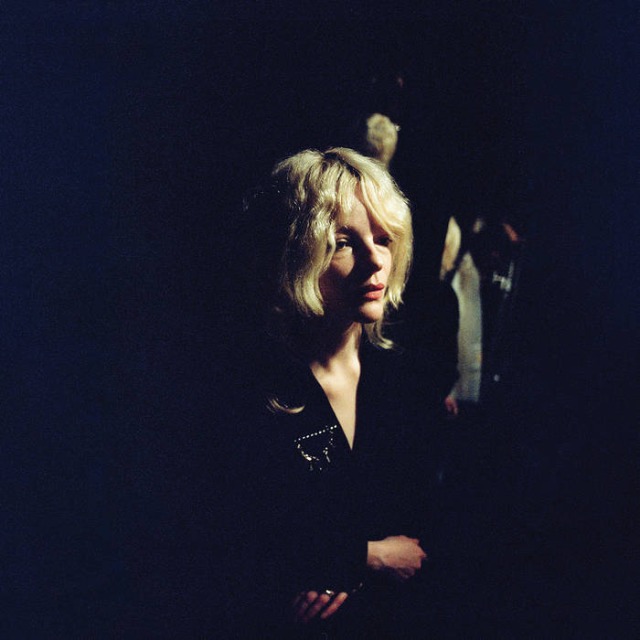 Much of Here in the Pitch attempts to reckon with time and all of its charms, disasters and unknowns. Whether that’s done through nods to a post-psychedelic haze on “World on a String,” through horn placements that echo the sounds, sights and ashy hues of the speakeasies that Los Angeles miscreants might have stumbled into four, maybe five decades ago, or lines like “I soon should know what remains / I never was what they called me in the dark / I never was / Here I sit so long”—it’s obvious that Pratt has never felt more comfortable in her own ambitions, a truth most prominently on display throughout a track like “Get Your Head Out,” which shimmies between the vibes of dimly lit hotel soirées and “in the stars waiting ‘til love’s aligned.” On Here in the Pitch, it’s as if Pratt is walking with us down the Yellow Brick Road, but the cobblestone quakes with bitumen smacked by traces of romance and horror that, on their own can be quite maddening but, here, make for some adventurous, Great American Songbook-worthy shapes.
Much of Here in the Pitch attempts to reckon with time and all of its charms, disasters and unknowns. Whether that’s done through nods to a post-psychedelic haze on “World on a String,” through horn placements that echo the sounds, sights and ashy hues of the speakeasies that Los Angeles miscreants might have stumbled into four, maybe five decades ago, or lines like “I soon should know what remains / I never was what they called me in the dark / I never was / Here I sit so long”—it’s obvious that Pratt has never felt more comfortable in her own ambitions, a truth most prominently on display throughout a track like “Get Your Head Out,” which shimmies between the vibes of dimly lit hotel soirées and “in the stars waiting ‘til love’s aligned.” On Here in the Pitch, it’s as if Pratt is walking with us down the Yellow Brick Road, but the cobblestone quakes with bitumen smacked by traces of romance and horror that, on their own can be quite maddening but, here, make for some adventurous, Great American Songbook-worthy shapes.
Likewise, you can hear the influence of something like Kenneth Anger’s Hollywood Babylon on Pratt all over Here in the Pitch—as she portends some great, years-long, menacing aura that, in due time, will be as fascinating as it once was harrowing. In that, the bubbliness of Pratt’s songwriting—no matter how far away from the microphone she sounds—saunters just a step ahead of all-falls-down. Here in the Pitch is a serenade of our own unique endtimes, packed with rollicking, sugar-sweet verses and vocalizations you can twirl your body to and curl up and anguish over all the same. And, at a mere 27 minutes in length, Pratt wastes no time with us. The whole project is tight as a wire, opening the door for a song like “Nowhere It Was” to lurk hauntedly—propelled by Carlson’s lucid drum machine and Pratt’s basement-stark singing. “It seems it’s all so wonderful inside,” she beckons, slashing through the gloom with a wounded olive branch. —MM [Read our full review]
Kacy Hill: Bug
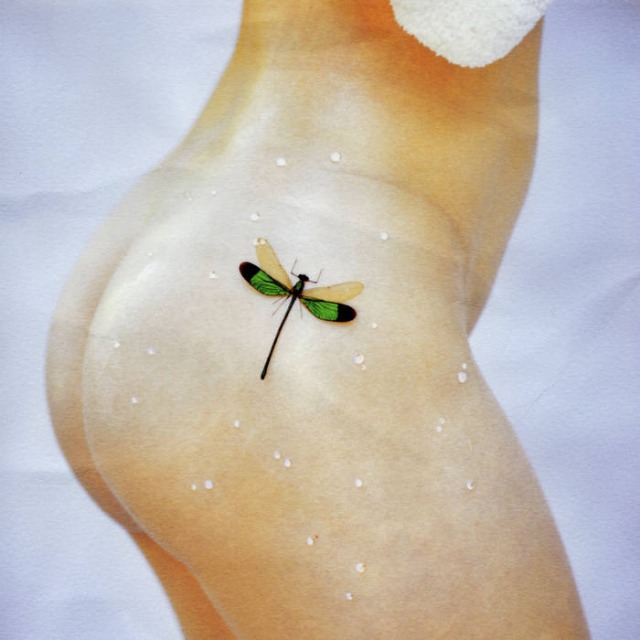 Bug returns to self-interrogating doubts over and over again. “Damn” addresses a man who can’t live up to the expectations he’s set for himself: “Damn, I wish you’d wanna / Be the man I thought that you were gonna.” Kacy Hill is unimpressed. The song’s Rostam-esque guitars build her frustration more than her vocals, until she finally lets out a high note in the bridge. Even though she’s disappointed in the man, her doubts inevitably return to herself: “You can’t think too far ahead / But that’s all I do, is that so bad?” On the HAIM-like “You Know I Love You Still,” Hill grapples with her goals in the music industry. There’s more questioning and more self-reassurance: “But just for now / Can I silence intuition?” It’s one of the few songs on Bug that reaches a conclusion—she overcomes all that self-doubt and still makes songs: “Give it one more try ‘cause / The heartbreak’s half the thrill.” Both songs are pastel and breezy, they don’t complicate or elaborate on Hill’s songwriting. Instead, they’re focused on setting the tone.
Bug returns to self-interrogating doubts over and over again. “Damn” addresses a man who can’t live up to the expectations he’s set for himself: “Damn, I wish you’d wanna / Be the man I thought that you were gonna.” Kacy Hill is unimpressed. The song’s Rostam-esque guitars build her frustration more than her vocals, until she finally lets out a high note in the bridge. Even though she’s disappointed in the man, her doubts inevitably return to herself: “You can’t think too far ahead / But that’s all I do, is that so bad?” On the HAIM-like “You Know I Love You Still,” Hill grapples with her goals in the music industry. There’s more questioning and more self-reassurance: “But just for now / Can I silence intuition?” It’s one of the few songs on Bug that reaches a conclusion—she overcomes all that self-doubt and still makes songs: “Give it one more try ‘cause / The heartbreak’s half the thrill.” Both songs are pastel and breezy, they don’t complicate or elaborate on Hill’s songwriting. Instead, they’re focused on setting the tone.
The album is at its best when it brings its discomfort to the surface. “My Day Off,” a duet with Marcus Brown—who records under the alias Nourished by Time—shakes off the sunlit lull of “Frog Rinse” with a spindly bass riff and meatier piano chords. Jim-E-Stack’s production is full of wiry guitars and subtle bass-synths. It’s both nostalgic and uneasy. When Hill returns to the same themes—her simultaneous comfort and claustrophobia in a relationship—they sound denser and knottier across this tangled production. Hill’s lilt foils against Brown’s baritone, as they sing the best hook on the album: “I can’t keep loving you more than me.” —Andy Steiner [Read our full review]
Kamasi Washington: Fearless Movement
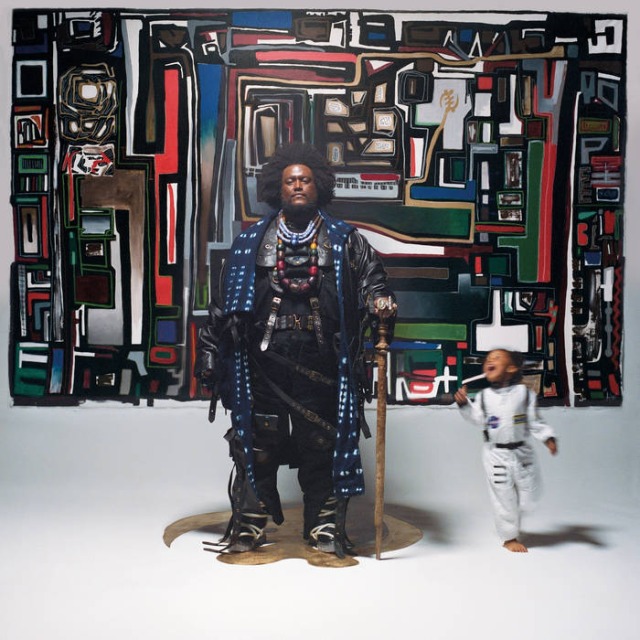 Kamasi Washington has never made a dance record before. With Fearless Movement, that’s about to change, at least in terms of its conceptual framework. The Los Angeles-based tenor saxophonist, composer and bandleader, on albums like 2018’s Heaven & Earth and 2015’s The Epic, delved into cosmological motifs of grandiose proportions. Although Washington’s music hasn’t lost any of its celestial nature, Fearless Movement explores the simple act of dancing as a form of expression. Dancing is intrinsic to music itself, whether Washington makes a straight-up house record or continues pursuing spiritual jazz, like he does on his latest album.
Kamasi Washington has never made a dance record before. With Fearless Movement, that’s about to change, at least in terms of its conceptual framework. The Los Angeles-based tenor saxophonist, composer and bandleader, on albums like 2018’s Heaven & Earth and 2015’s The Epic, delved into cosmological motifs of grandiose proportions. Although Washington’s music hasn’t lost any of its celestial nature, Fearless Movement explores the simple act of dancing as a form of expression. Dancing is intrinsic to music itself, whether Washington makes a straight-up house record or continues pursuing spiritual jazz, like he does on his latest album.
On Fearless Movement, Washington wanted to create something that he could imagine Lula Washington and her dancers using in a performance; he wanted to create something in which the listener was a direct, active participant in the making of its meaning. “I felt like it would just be fun to make music that people wanted to join in on rather than just listen,” he continues. “That seemed fun to me, to have people release and let go. There is a sort of release and letting go when you allow yourself to dance. Even for people who aren’t dancers, there’s a similar thing.” Washington intended to start recording another album much sooner, but, understandably, becoming a parent will stall that process by a year or two. Even then, Fearless Movement wouldn’t be the record that it currently is had he not become a father beforehand. Such a consequential life chapter inevitably shapes everything you do, including your art. It’s a sentiment he bears in mind. “It’s a monumental experience to truly discover unconditional love, and it changes who you are,” he muses. “We have people that we care about and that we would put our lives in danger for, but it’s different, like this person is more important than me. That’s actually a beautiful state to be in to release you because, now, life isn’t about you. It changes the perspective that you see things. Music is such a reflection of who you are and how you see things, that change definitely affects how I make music.” —Grant Sharples [Read our Digital Cover Story]
Lightning Bug: No Paradise
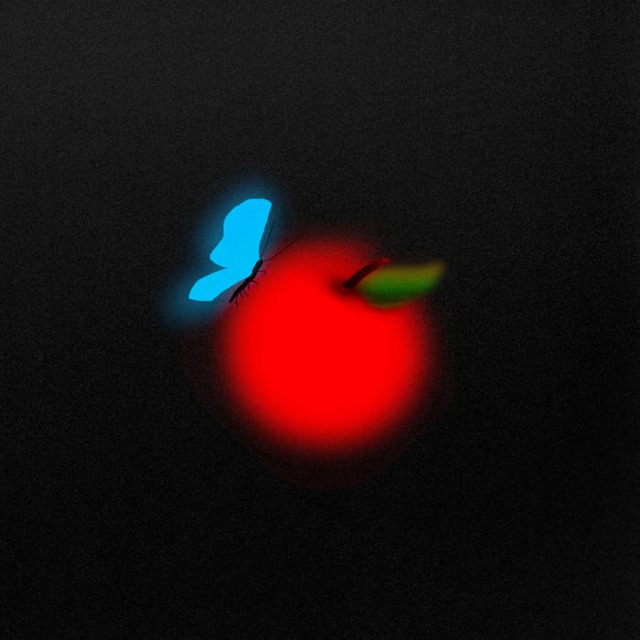 On No Paradise, Lightning Bug were inspired by bandleader Audrey Kang’s 4,000-mile motorcycle ride from New Mexico to New York. On “December Song,” Kang’s vocals effortlessly glide through the track over soft, meandering percussion and accented strings that expand and shift. Her lyrics express a gripping sadness that is intertwined with an equally potent desire for growth and change, as she sings “I wish the gods would turn me into a tree / But keep my mind distinct, alive, and free / My trunk will thicken with ring after ring / My fingertips will blosson in the spring.” “December Song” finds strength in its subdued nature, allowing Kang’s poetic lyricism to shine through its feathery and lilting instrumentation. On the “dystopian folk song written for a post-apocalyptic fantasy saga” “Opus,” Lightning Bug pack the instrumentation with subtle and rumbling builds that sharply contrast with Kang’s slick vocals. The twinkling instrumental rises and falls in organic breaths, treading a line of suspense and urgency that carries the track along. A low and ringing bassline slivers through these sections of tension, articulating a growing persistence in the instrumental. “Opus” is a distinct single that burns with careful intention and a cinematic sense of drama, and “Lullaby for Love” leans into the cheesy side of life—as it fluctuates between being a soaring romantic ballad and a smokey, groovy interlude. —Grace Ann Natanawan & Olivia Abercrombie [Read our recent feature]
On No Paradise, Lightning Bug were inspired by bandleader Audrey Kang’s 4,000-mile motorcycle ride from New Mexico to New York. On “December Song,” Kang’s vocals effortlessly glide through the track over soft, meandering percussion and accented strings that expand and shift. Her lyrics express a gripping sadness that is intertwined with an equally potent desire for growth and change, as she sings “I wish the gods would turn me into a tree / But keep my mind distinct, alive, and free / My trunk will thicken with ring after ring / My fingertips will blosson in the spring.” “December Song” finds strength in its subdued nature, allowing Kang’s poetic lyricism to shine through its feathery and lilting instrumentation. On the “dystopian folk song written for a post-apocalyptic fantasy saga” “Opus,” Lightning Bug pack the instrumentation with subtle and rumbling builds that sharply contrast with Kang’s slick vocals. The twinkling instrumental rises and falls in organic breaths, treading a line of suspense and urgency that carries the track along. A low and ringing bassline slivers through these sections of tension, articulating a growing persistence in the instrumental. “Opus” is a distinct single that burns with careful intention and a cinematic sense of drama, and “Lullaby for Love” leans into the cheesy side of life—as it fluctuates between being a soaring romantic ballad and a smokey, groovy interlude. —Grace Ann Natanawan & Olivia Abercrombie [Read our recent feature]
Mdou Moctar: Funeral for Justice
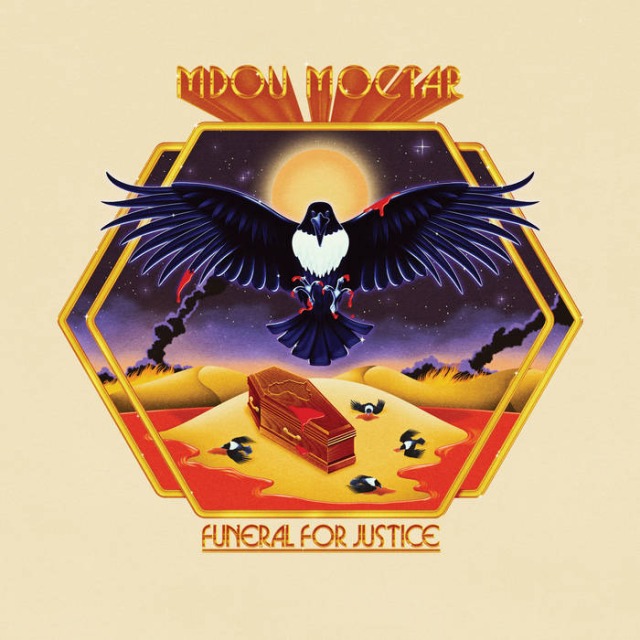 The latest LP from Nigerien psych-rock guitarist Mdou Moctar very well might be his very best yet. Funeral for Justice roars right from the jump, facing French colonialism, African political failures and the slow extinction of Moctar’s Tamasheq language head-on—and the result is nine songs of unrelenting ferocity and shredding. I dare you to listen to this record and try and argue that rock ‘n’ roll is dead, as Moctar continues to be one of our greatest living six-stringers. “Imouhar,” the title-track and “Takoba” revel in everything from psychedelia to folk to soul, and Moctar’s bandmates—Ahmoudou Madassane, Mikey Coltun and Souleymane Ibrahim—fill in not behind him, but next to him. Moctar’s complex and spirited songwriting rises here again, and Moctar’s melodic and fluid vocal performances seamlessly glide across all 39 minutes of Funeral for Justice. The instrumentation is often hard-hitting and intricate, though closing track “Modern Slaves” shows just how virtuosic, swirling and precise Moctar’s work can get when he has the means to really spread out. —Grace Ann Natanawan & Matt Mitchell
The latest LP from Nigerien psych-rock guitarist Mdou Moctar very well might be his very best yet. Funeral for Justice roars right from the jump, facing French colonialism, African political failures and the slow extinction of Moctar’s Tamasheq language head-on—and the result is nine songs of unrelenting ferocity and shredding. I dare you to listen to this record and try and argue that rock ‘n’ roll is dead, as Moctar continues to be one of our greatest living six-stringers. “Imouhar,” the title-track and “Takoba” revel in everything from psychedelia to folk to soul, and Moctar’s bandmates—Ahmoudou Madassane, Mikey Coltun and Souleymane Ibrahim—fill in not behind him, but next to him. Moctar’s complex and spirited songwriting rises here again, and Moctar’s melodic and fluid vocal performances seamlessly glide across all 39 minutes of Funeral for Justice. The instrumentation is often hard-hitting and intricate, though closing track “Modern Slaves” shows just how virtuosic, swirling and precise Moctar’s work can get when he has the means to really spread out. —Grace Ann Natanawan & Matt Mitchell
The Lemon Twigs: A Dream Is All We Know
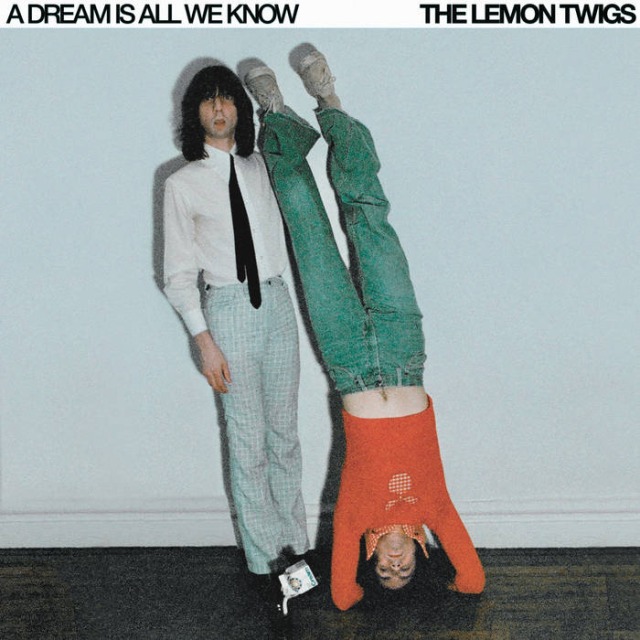 Not even a year ago, Long Island brothers Brian and Michael D’Addario—the Lemon Twigs—unveiled their best record yet, Everything Harmony. Cut to 2024, and they’re already onto their next vision: A Dream Is All We Know. Lead single “My Golden Years” very well might be the greatest song they’ve ever put out, as it is a miraculous display of sun-soaked, power-pop jamming that conjures attitudes of pre-Rubber Soul Beatles magic and impressive, meticulously layered vocals spurred by the Beach Boys, Monkees and the Byrds. Michael takes the lead on “My Golden Years,” scaling back his usual enigmatic, over-the-top co-frontman persona for a refined, confident display of rock stardom. There’s about 60 years of influence poking through this track (and it helps that the D’Addarios recorded it on era-specific equipment), but the result is something wholly modern and wholly Lemon Twigs. You can point at different landmarks in the pop music canon, but each direction taken will lead back to Brian and Michael.
Not even a year ago, Long Island brothers Brian and Michael D’Addario—the Lemon Twigs—unveiled their best record yet, Everything Harmony. Cut to 2024, and they’re already onto their next vision: A Dream Is All We Know. Lead single “My Golden Years” very well might be the greatest song they’ve ever put out, as it is a miraculous display of sun-soaked, power-pop jamming that conjures attitudes of pre-Rubber Soul Beatles magic and impressive, meticulously layered vocals spurred by the Beach Boys, Monkees and the Byrds. Michael takes the lead on “My Golden Years,” scaling back his usual enigmatic, over-the-top co-frontman persona for a refined, confident display of rock stardom. There’s about 60 years of influence poking through this track (and it helps that the D’Addarios recorded it on era-specific equipment), but the result is something wholly modern and wholly Lemon Twigs. You can point at different landmarks in the pop music canon, but each direction taken will lead back to Brian and Michael.
And on a song like “How Can I Love Her More?,” it sounds like the percussion is coming from one stereo drum set in both ears. But, it’s actually two mono drum kits—one being played in each ear. Brian and Michael harmonize like they’re singing up a spiral staircase, as Brian takes the baroque lead and reshapes the horn melody into a Holland-era Beach Boys arrangement. Likewise, he and Michael ham up the whirring, theatrical highs of the title track by resurrecting the discarded pop detritus of proto-synth-pop and meshing it with gliding guitars that zig and zag concurrently with vignettes of vocal harmonies. It’s here that the backbone of their oeuvre comes to life: “Love isn’t something you know,” Michael sings out, with Brian sending missile harmonies into the sonic space behind him. “The more you choose it, you’re bound to lose it.” —MM [Read our full feature]
Other Notable New Album Releases This Week: Adeem the Artist: Anniversary; Agriculture: Living is Easy / The Circle Chant; American Culture: Hey Brother, It’s Been A While; Better Than Ezra: Super Magick; Dua Lipa: Radical Optimism; Frank Turner: Undefeated; ghost piss: Dream Girl; Ibibio Sound Machine: Pull the Rope; Jess Locke: Real Life; John Carpenter: Lost Themes IV: Noir; Now Windows: Point Nemo EP; S. Raekwon: Steven; Sia: Reasonable Woman; Winona Oak: Void EP